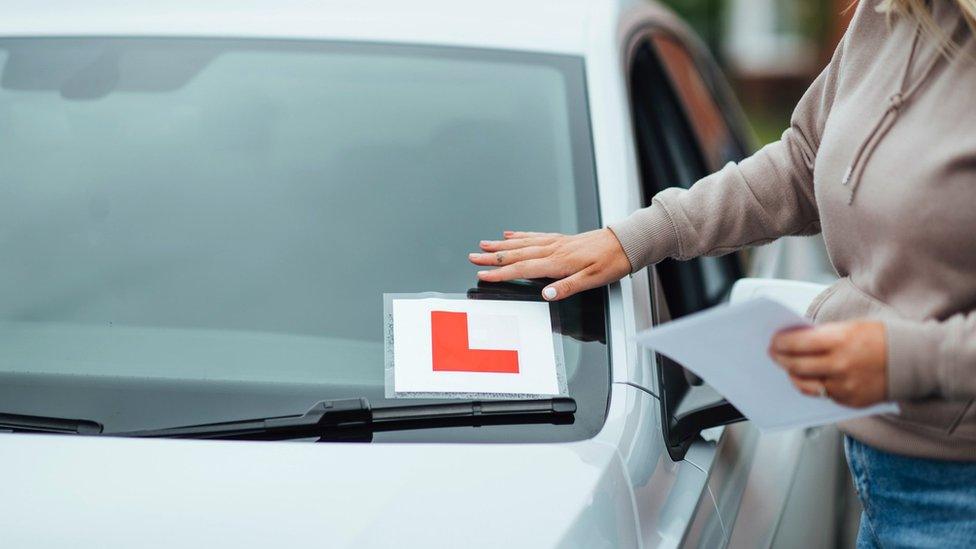Car insurance: Young drivers risk fraud to save on costs
- Published

Record high costs of car insurance could tempt more young people to commit fraud, the industry has said.
Recent data showed average policy quotes for 17 to 24-year-olds stood close to £3,000.
But the Insurance Fraud Bureau (IFB) has warned against "fronting", external, where someone is added to a policy as a named driver when they should have one of their own, in order to save money.
Fronting is fraudulent and the IFB says it is never worth the risk.
If evidence of fronting is found, it would invalidate your insurance policy and could result in a criminal conviction.
'Outrageous' quotes
Typically, insuring younger drivers has always cost more because of the risks associated with their inexperience.
Often, they are added to their parents' policy as a named driver even though they are the main driver of the car.
The Association of British Insurers (ABI) says a main driver just has to be the person who drives the car the majority of the time.
An IFB survey last year revealed a quarter of 18 to 24-year-olds would find it acceptable to lie on an insurance application to save money - although many may be aware that fronting is illegal.
"With prices rising, we understand more young people will be tempted to front on their car insurance to save money, but fronting is never worth the risk," Jon Radford, head of intelligence, investigations and data services at the IFB, said.
Lucy, 17, from Leeds told the BBC she was shocked by the quotes she received after passing her driving test in December.
"They were just outrageous," she said. "Some of them were just silly - one was for £9,000."
To overcome the costs Lucy's mum took out a £2,800 policy on the car and added her daughter as a named driver.
While her mum does drive the car, Lucy uses it for college during the week and to get to her weekend job.
Her mum Andrea told the BBC she had never heard of fronting before, but believes she and her daughter share the car equally.
"We had no other option," she said. "We did look at putting it in her name, we asked the question of the insurance company and this is what they came back with."
Lucy said she was aware of fronting. "Obviously it's a concern, but once I've done my A-levels my mum will be driving the car to work and I will have it on weekends so she will be the main driver.
"At the moment there's not really anything I can do. It's either that or I don't drive."
While Lucy would like her own policy, she added: "Everyone's in the same position. Being a named driver is the only way anyone can afford to do this."
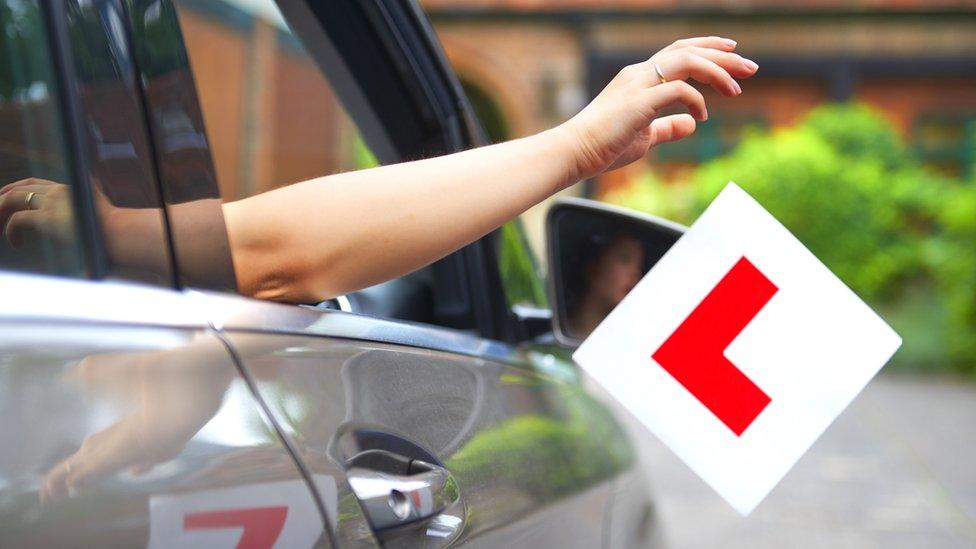
Passing a driving test is now the simply the first hurdle for many young drivers
Insurance for young drivers often outstrips the cost of a second-hand car, the usual vehicle for those who have just passed their test. These costs may be having an impact.
The numbers of driving tests being taken by young people has dropped in recent years.
In 2019-20, before the first lockdown of the pandemic, 520,505 tests were taken by 17 and 18-year-olds, according to the Driving Vehicle Standards Agency. But in 2022-23 that figure fell to 504,718.
However, there is no data on what is behind the drop and whether it has anything to do with costs or is simply a hangover from the driving test backlog accumulated during and after Covid.
'The car became an ornament'
Paul from West Lothian told the BBC that when his 17-year-old daughter Danni passed her driving test, the firm she had her provisional insurance with refused to transfer the policy.
"The car became an ornament," he said.
The 59-year-old hunted around and took out a £3,600 policy in his name and added his daughter as a named driver with a black box.
Without the car she would have an eight-mile trip to college, which would otherwise take two bus journeys with "times that are all over the place", he said.
Now Danni drives herself to college although the car is also driven by both parents. "I'm sure we're not doing anything illegal," Paul said.
However, his concern is that costs have become so prohibitive that people will start driving without insurance.
"Absolutely, that is a worry," he said. "What I want to know is, why can't we have a system of insurance like they have in Australia, where the car is insured and not the person?
In every state in Australia compulsory third-party insurance, external is paid as part of vehicle registration, although this only covers injuries to other people and not damage to other vehicles. Other third-party policies and comprehensive policies are optional and can be added by the owner.
'It's either no insurance or bike'
In Bicester, 19-year-old Stefan is also struggling with high costs.
Despite a full-time job driving for Ocado, he can no longer afford to keep his own car because of the insurance premiums, having been quoted around £700 a month or £8,000 a year.
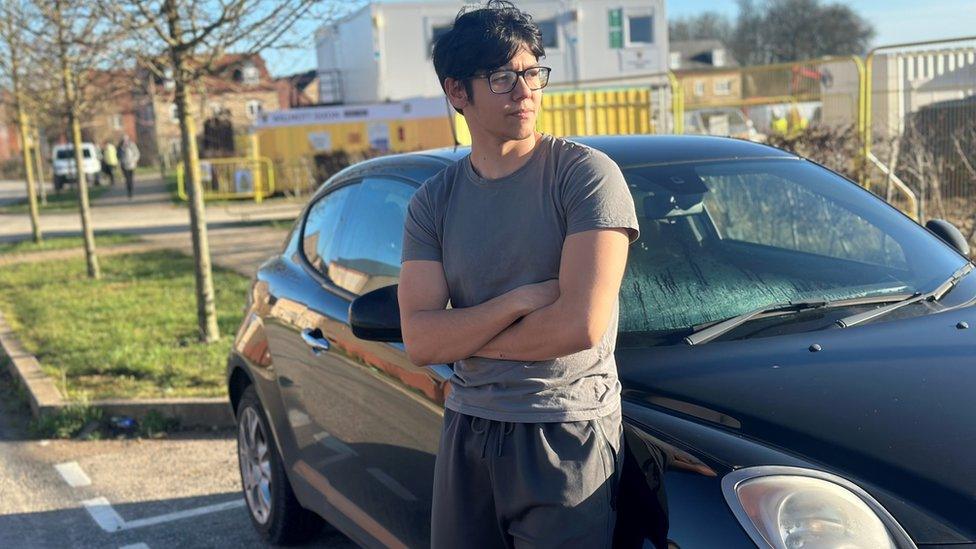
Stefan is selling his car because he cannot afford the insurance despite his job driving for Ocado
"I drive eight hours on average every day at work," he said. "They judge books by covers and think that just because you're young you must be a bad driver.
"It's either driving without insurance and risk ruining my future or going to work at 6am in the freezing cold with a bicycle."
Stefan said he would be buying a bike.
Tackling fraud
The IFB, which works with the police and the insurance industry to combat organised fraud, said drivers can have their vehicles seized by police if they have invalid insurance, receive a driving ban and an unlimited fine. A criminal conviction will impact job prospects, it added.
It also said if there was clear evidence of fronting, those responsible can be added to the Insurance Fraud Register, which is shared with the industry and can impact taking out future policies.
The IFB said fraudulent insurance applications added costs to "all honest consumers' premiums which is why we're working closely with insurers to tackle the problem".
Fraud costs the industry around £1bn a year, according to the Association of British Insurers.
Additional reporting by Kris Bramwell.

Are you affected by the issues raised in this story? Share your experiences by emailing haveyoursay@bbc.co.uk, external.
Please include a contact number if you are willing to speak to a BBC journalist. You can also get in touch in the following ways:
WhatsApp: +44 7756 165803
Tweet: @BBC_HaveYourSay, external
Please read our terms & conditions and privacy policy
If you are reading this page and can't see the form you will need to visit the mobile version of the BBC website to submit your question or comment or you can email us at HaveYourSay@bbc.co.uk, external. Please include your name, age and location with any submission.
Related topics
- Published17 January 2024
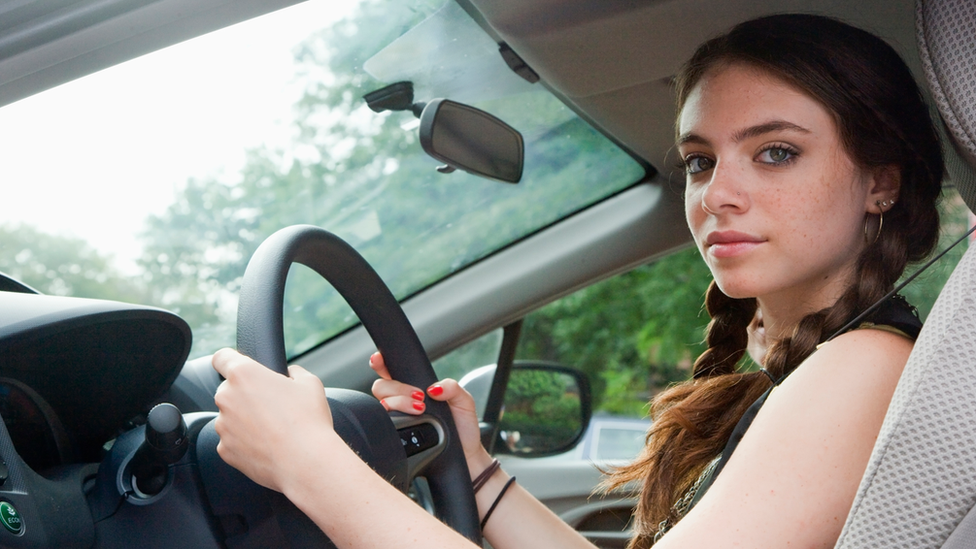
- Published6 September 2023
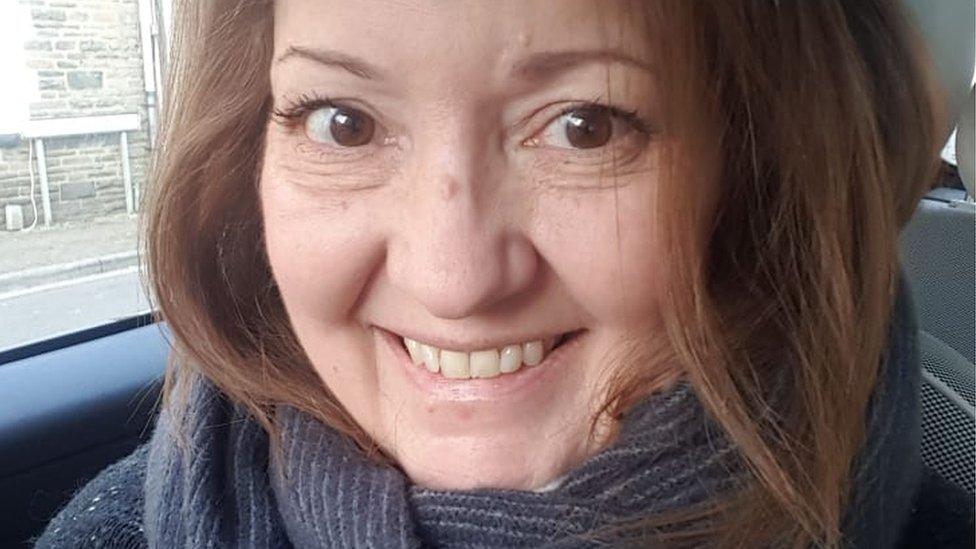
- Published30 March 2023
